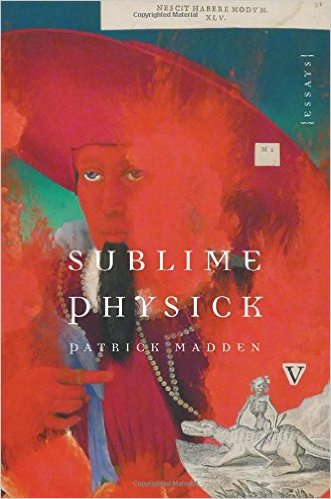 A 352-word essay took me two years to write. It started with a prompt at a low-residency workshop, then expanded into a long essay (per a professor’s suggestion), then written into a nonfiction manuscript, then removed from said manuscript, and finally rewritten at another low-residency workshop with another prompt, two years after the first. Instead of being happy about its publication, I felt like a slug and a fraud—like I was too slow, and couldn’t write anything without the help of a prompt, or without the work of other writers.
A 352-word essay took me two years to write. It started with a prompt at a low-residency workshop, then expanded into a long essay (per a professor’s suggestion), then written into a nonfiction manuscript, then removed from said manuscript, and finally rewritten at another low-residency workshop with another prompt, two years after the first. Instead of being happy about its publication, I felt like a slug and a fraud—like I was too slow, and couldn’t write anything without the help of a prompt, or without the work of other writers.
Patrick Madden’s Sublime Physick makes me feel better about two things: that writing takes time, and that we all suffer from “Independent Redundancy.”
The second-to-last and longest essay of the book, “Independent Redundancy” took seven years to write, clocks in at over thirty thousand words, and explores “the phenomenon of two or more individuals coming up with the same idea without any cross-pollination or shared influence.” Madden mentions controversies and court cases from music history, along with passages of writing about his own writing, quotations from other essayists, musings on why independent redundancies occur, plus images and illustrations. Sublime Physick is a mix of Montaigne and Sebald (as noted by Brian Doyle) with a dash of Chuck Klosterman.
Madden’s essays traverse great depth and breadth. His writings are reflective, pivot to follow the thread of a thought, balance irreverence and grace, and are built on a bedrock of culturally relevant scenes and subjects. Reading Madden’s meta-writings on his own writing is like listening to a magician revealing his tricks, yet he always holds the upper hand: “So the obvious question here is What steganographic secrets does this essay contain? The answer is Yes.”
Still, I am suspicious of writings that seem reveal everything, so willingly, even though that is often the mark of a good essayist (“spend it all,” said Annie Dillard), and I am especially skeptical when Madden says that the universe often conspires to help him write essays: “I am constantly preaching about how when I’m ‘in’ an essay, my life seems to align itself to the essay, offering up quotations and memories, experiences old and knew, in service of the idea I’m exploring.”
Sure, it’s a nice notion, to think that some higher power is looking out for us lowly, solitary writers, but I feel like the universe has other, more important things to attend to. The answer to my unspoken question comes no more than ten minutes after closing the covers of Sublime Physick, when I search the internet for a way into this review, and find a 2015 TriQuarterly piece by Patrick Madden, titled, “Finding a Form Before a Form Finds You.”
Any doubts are slain, and this line from the essay “Miser’s Farthings” is etched further into the brain: “What we know, or think we know, is always surrounded by mystery, which makes an essay both necessary and indeterminate, both essential and futile.”
__
e.v. de cleyre is a semi-nomadic writer currently residing in the Pacific Northwest. She holds an MFA in nonfiction from New Hampshire Institute of Art, and her essays and reviews have appeared in Brevity, Ploughshares online, The Review Review, and ayris.

1 comment
Debra Hagan says:
Jul 22, 2016
Great review. Thanks for your honesty.